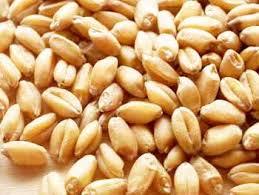Carbon neutrality, the act of reducing as much carbon in the atmosphere, is now a part of food security and sustainable agriculture solutions, thanks to a recent challenge at Washington University in St Louis.
Dr. Nick Goeser, the National Corn Growers Association's (NCGA) director of Soil Health and Sustainability and director of the Soil Health Partnership, participated in a series of college events to create solutions to the emerging challenge of a carbon neutral food supply called Berkeley Nourishing 9 Billion SolutionLab.
“Business, industry and even individual consumers are looking for ways to reduce their carbon footprint,” Goeser said. “In agriculture, farmers are looking to improve and expand carbon-neutral crop production methods such as conservation tillage and cover crops. Cover crops are plantings such as rye and clover that reduce the amount of carbon dioxide released while keeping key nutrients trapped in the soil.”
The students at the event discussed various ways of stopping world hunger, which affects 17 million children worldwide. Topics included positive changes in public policy, the role of precision agriculture, biotechnology, soil nutrition and fertilizers, and the pros and cons of organic vs. conventional production practices.
“NCGA is partnering in a long-term initiative called the Soil Health Partnership that is collecting the data and communicating on the agricultural management practices that improve soil health, crop yields, economic performance, carbon sequestration and broader environmental performance,” he said. “Many farmers are already implementing innovative management practices. This farmer-led project provides a platform for information sharing that will be critical to agricultural sustainability.”




 Alerts Sign-up
Alerts Sign-up